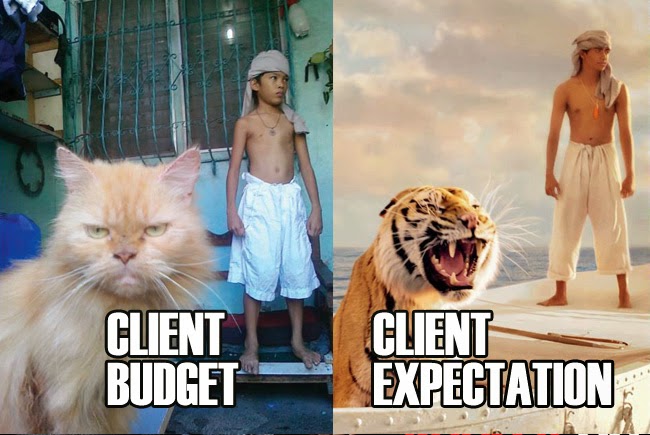
Itay Haritan
Shoffi CEO
During my first three years working as a web developer with Shopify, my team and I built over 100 Shopify stores. I’ve made many mistakes and learned a lot on this journey—keep reading for some of these lessons.
Focus on a Few Services
I offered it all in the beginning: Digital marketing, Store redesign, Store setup, Development services (and probably a few more). That was a huge mistake.
It was hard to compete with digital marketing agencies who were professional in that era or branding and design studios that were doing only that. You can’t be an expert at everything.
Eventually, I broke it down into two services: Store setup and Development services, so I could build a reputation on specific things and not compete with too many other agencies.
That turned out as a great idea. The leads I’ve got were more focused, and I became a professional in selling those services. Another benefit was that many tasks were similar, so I could copy most of what I did from one store to another.
Start Local, Then Global
It’s very tempting to start with targeting clients from all over the world, especially if they are from wealthier countries.
However, I would highly suggest starting local and then expanding as your business grows. It’s easier to get word-of-mouth referrals, the competition is much lower, and you’ll be able to rank your website on search engines more easily. I saw this first hand with my agency, ranking #1 for many Shopify terms in Hebrew.
There will also be some unique services and tasks to this location, such as a specific shipping provider or payment solution that needs some code to integrate.
My agency mainly served Israeli clients initially, which began to fill out our client base. One of the tasks we were repeating was adjusting the Shopify themes to RTL layout (Hebrew is written from right to left), which turned later to be an app we developed to do it automatically, RTL Master.
After building our reputation and with a bigger team, we started to market globally and acquired non-Israeli clients.
Acquisition Channels
I won’t list all of them, but the ones that worked best for me, and I recommend you to focus on include:
- Getting involved with the Shopify community (FB groups, etc.), preferably local ones. Start answering people’s questions and try to network with merchants.
- Partnering with service providers that offer related services (Marketing, design, etc.) and refer clients to each other.
- Creating a user-friendly website. Creating a website is very easy (well, it better be for you), and it generates high-quality leads that contact you after seeing your work and services. If you’re not in a big market, you can also get good traffic from Google. I ranked #1 for most Shopify searches in Hebrew within a few months, and with only 6 to 7 SEO-optimized blog posts.
Decide Clients Based on Quality vs. Quantity
There are two sides to this, depending on your current portfolio.
If you’re just starting – the more, the better. Even if your work consists of cheap clients or small tasks, this will help you build your portfolio and get a reputation.
Not many people want to work with someone who’s worked with only 2 clients before. For one of my first clients, I updated the product descriptions of 600 school backpacks, one by one. It still hurts, but it was one more client to the portfolio.
Once you have a reputation – Choose a few clients, and make the most of them. Work on long-term projects, with a focus on quality.
If possible, try to offer retainers. Retainers are a great way to ensure steady cash flow, which is what you need if you want to start hiring. Try to offer some monthly services with the retainer to make the client more likely to agree, like a Website speed report or a monthly summary of features you created and planned for next month.
Find Partners and Affiliate programs
The knowledge and connections you have from your work with your clients are worth gold for some people. It would be a crime not to make those connections into a revenue stream for your agency.
A few ideas for affiliate partners include:
- Shopify Apps – You will use and recommend many of them while building stores to merchants. Those apps are digital products and have a very high profit margin. They will be happy to offer a nice revenue share for every install. We built Shoffi to make this process easier.
- Payment providers – Some offer a monthly revenue or one-time payment for every referral.
- Shopify Affiliate Program – I made the mistake of not caring too much, because I developed stores for clients on the basic plan in the beginning. So I didn’t actually use Shopify referrals. Many of those stores snowballed and are now on the Advanced plan, which could have given me another $60/M for each.
- Service providers – Translators, eCommerce legal advisors, Accessibility consultants, or whoever you can think of will be happy to pay you for every referral. Make sure your clients are happy with them and if they do, start suggesting clients to use their services.
Develop or Buy a Shopify App
Having our own app for the agency helped In many ways:
- Reputation: Made the agency look much more professional.
- Customer acquisition: App users turned into customers for our agency services.
- Steady income stream: You can never have too many.
Shopify agencies are in the best position to make a Shopify app. They have the best knowledge of the pain points merchants have and what they will be willing to pay for. Even if it means hiring a backend developer or buying an existing app and improving it, I highly recommend doing it.
A Few More Tips
- As long as the client approves it, add a reference to your agency website at the bottom of the store. This is great for SEO as it builds your backlinks and domain authority and helps with lead generation.
- Your clients are merchants, which means they are most of the time experienced businessmen. Don’t take anything personally, and don’t be afraid to be tough when needed.
- Decide from the beginning what company size you’re aiming for. Do you want to be a big agency, small boutique team, or working by yourself? This will help you to navigate between all the options and dilemmas you’ll face as you grow.
Conclusion
I ended up selling my agency after finding a buyer who was happy to pay what I was asking.
I always had a passion for the product and startup world. After I saw that our Shopify app “RTL Master” did pretty well and didn’t require much of my time, I decided to go full-time on Shoffi, and help app owners and Shopify agencies to grow their revenue.




